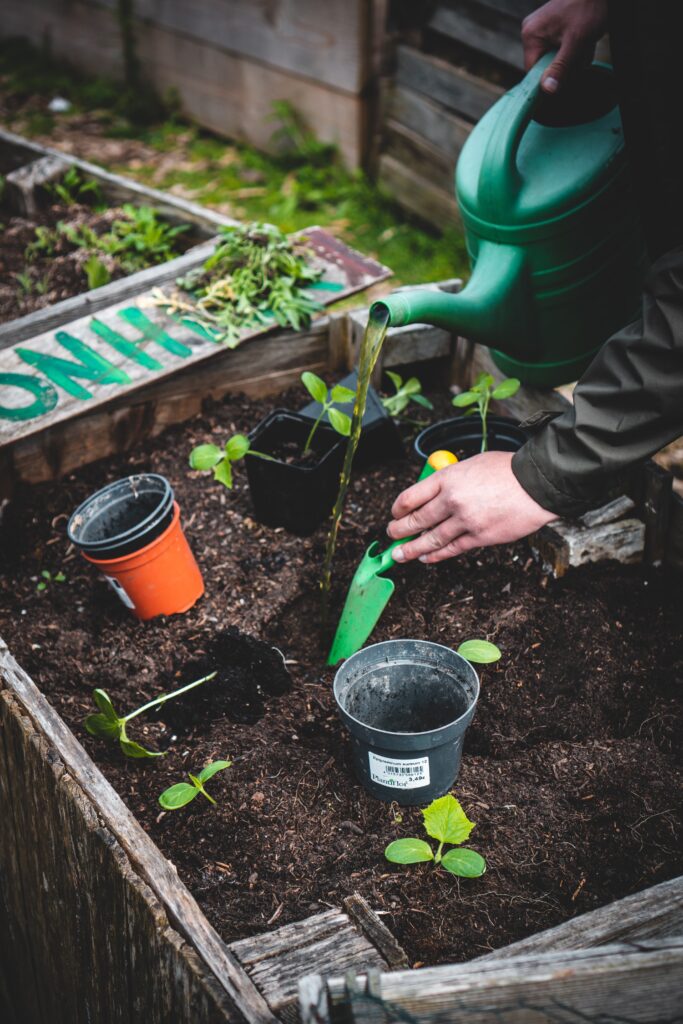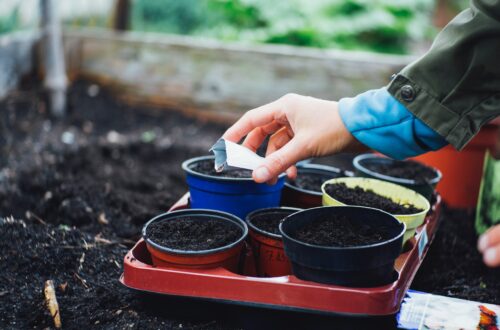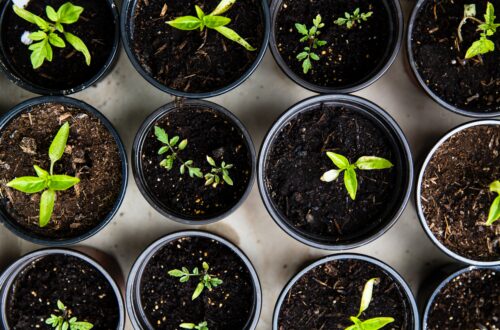In a world filled with constant noise and demands, it’s essential to find moments of tranquillity and inner peace. One such sanctuary exists right outside our doors – the garden. Gardening is not merely a hobby; it’s a powerful tool for nurturing mental health. In this article, we will explore the profound ways in which gardening can benefit your mind, body, and soul, backed by science and personal experiences.

1. Mindful Gardening: The Art of Being Present
In the whirlwind of modern life, it’s easy to lose touch with the present moment. We find ourselves perpetually caught up in thoughts of the past or worries about the future. Gardening, however, offers a path to mindfulness, a practice that encourages us to be fully engaged in the here and now.
Scientific Evidence: A study published in the Journal of Health Psychology found that engaging in gardening significantly reduced levels of the stress hormone cortisol. This indicates that the act of gardening can trigger a relaxation response and promote a sense of calm.
When we garden, we are forced to pay attention to the smallest of details – the texture of the soil, the scent of the flowers, and the feel of the warm sun on our skin. This heightened awareness of our surroundings fosters mindfulness, reducing anxiety and promoting a sense of well-being.
2. The Healing Power of Nature
There’s a reason why many therapeutic environments incorporate natural elements – because nature has a profound healing effect on the human psyche. Gardening brings us in direct contact with the natural world, allowing us to reap the benefits of this age-old connection.
Scientific Evidence: A study conducted by the University of Exeter found that people who spent at least two hours in nature each week reported better health and increased well-being. Gardening provides the perfect opportunity to immerse oneself in nature regularly.
The simple act of being surrounded by greenery can reduce symptoms of depression and anxiety. Exposure to nature has been shown to lower heart rate, decrease muscle tension, and enhance mood. In Japan, the practice of ‘forest bathing’ or ‘shinrin-yoku’ is prescribed as a form of therapy due to its restorative effects on mental health.
3. Gardening as a Form of Exercise
Physical activity is a well-known mood booster, and gardening can provide a surprisingly effective workout. Gardening tasks such as digging, weeding, and planting involve a range of motions that engage various muscle groups, offering a low-impact, full-body workout.
Scientific Evidence: A review of studies published in the American Journal of Lifestyle Medicine highlights the positive effects of gardening on physical health. Regular gardening can contribute to weight management, increased flexibility, and improved cardiovascular health.
Exercise releases endorphins, which are natural mood lifters. So, while you’re tending to your garden, you’re also giving your mental health a substantial boost. Additionally, the sense of accomplishment that comes from seeing your garden thrive can enhance self-esteem and self-worth.
4. Cultivating a Sense of Purpose and Achievement
One of the most rewarding aspects of gardening is watching your efforts come to fruition. The act of nurturing a tiny seed into a thriving plant instils a sense of purpose and accomplishment, no matter how small the garden.
Scientific Evidence: A study published in the journal Applied Psychology: Health and Well-being found that engaging in meaningful activities, like gardening, can promote a sense of purpose and reduce the risk of depression.
Gardening teaches us patience, as we wait for seeds to sprout and plants to grow. It fosters resilience, as we learn to adapt to the challenges that nature presents. These lessons can be carried into other areas of life, helping individuals navigate difficult times with more grace and fortitude.
5. Social Connection and Community Gardens
Gardening need not be a solitary endeavour. Many communities offer communal gardens, where people can come together to share their love for plants and nature. These spaces foster social connections and provide a sense of belonging.
Scientific Evidence: A study published in the American Journal of Community Psychology found that participating in community gardening projects promotes social integration, builds a sense of community, and enhances overall well-being.
Gardening in a group setting can combat loneliness and isolation, which are common contributors to mental health issues. Sharing knowledge, experiences, and the fruits of one’s labour with fellow gardeners creates a supportive network that extends beyond the garden gate.
6. Gardening and Stress Reduction
The modern world is rife with stressors, from work pressures to personal responsibilities. Gardening offers an escape from these stressors and provides a therapeutic outlet for releasing tension.
Scientific Evidence: A study conducted at the University of Bristol revealed that gardening can reduce stress and improve mood. Participants reported a significant improvement in mood and a decrease in stress levels after engaging in gardening activities.
Gardening allows us to disconnect from the digital world and immerse ourselves in the physical act of nurturing and creation. The repetitive and rhythmic tasks involved in gardening, such as weeding or pruning, can induce a state of relaxation similar to meditation.
7. Promoting Healthy Eating Habits
The act of gardening often extends to the cultivation of fruits and vegetables. Growing your own produce not only ensures access to fresh, organic food but also promotes healthier eating habits.
Scientific Evidence: A study published in the journal Public Health Nutrition found that individuals who participate in gardening are more likely to consume a diet rich in fruits and vegetables. This is due to the increased appreciation and connection to the food they grow.
A diet rich in fruits and vegetables is associated with better mental health outcomes. Nutrient-dense foods provide essential vitamins and minerals that support brain function and mood regulation. Additionally, the act of gardening encourages a greater awareness of where our food comes from, fostering a deeper connection to the Earth and our own well-being.

Conclusion: Cultivating Wellness Through Gardening
Gardening is a holistic therapy that engages the mind, body, and soul. It provides a path to mindfulness, connects us with the healing power of nature, and offers a fulfilling sense of purpose. Gardening is a form of exercise that releases endorphins, fosters a sense of accomplishment, and reduces stress. It encourages social connections and healthy eating habits, ultimately contributing to better mental health.
As you embark on your gardening journey or continue tending to your beloved garden, remember that you are not only nurturing plants but also nurturing your own well-being. The simple act of digging in the dirt, planting seeds, and watching life bloom can be a powerful remedy for the challenges of modern life. So, whether you have a sprawling backyard or a small balcony, consider giving gardening a try, and let the healing power of nature transform your mental health for the better.


